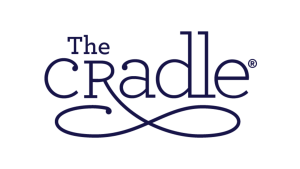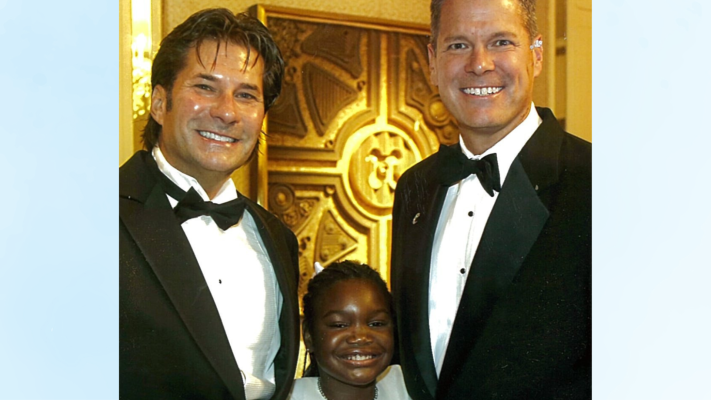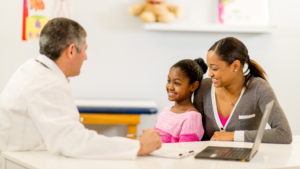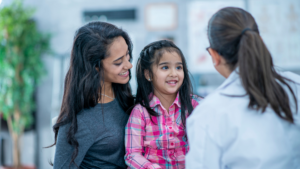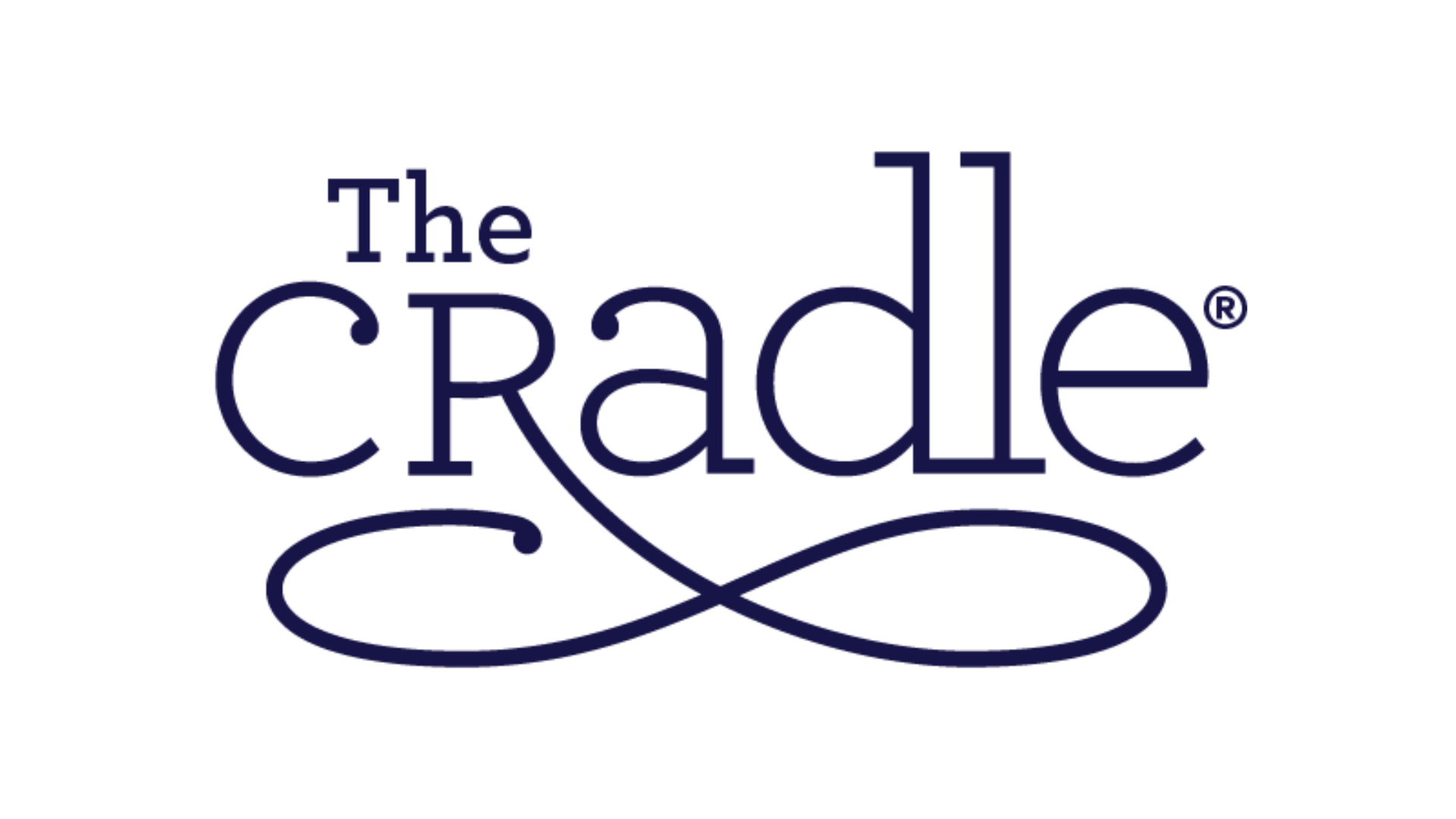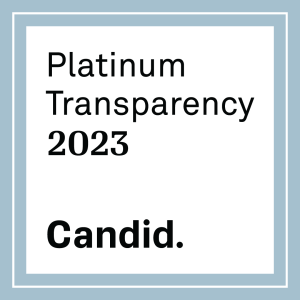Cradle Board Chair John S. Luce shares his story and offers insights into what LGBTQ+ adoptive parents can expect, how to prepare for the various challenges of the adoption process and why counseling services are so critical.
Adoption is a popular route for many LGBTQ+ people looking to expand their families. When beginning the adoption journey, prospective LGBTQ+ parents should understand the unique challenges and considerations they may have to navigate during the process.
Cradle Board Chair John S. Luce shares his family’s adoption story for The Cradle Blog to help guide other LGBTQ+ parents through their own adoption journeys. John covers the challenges he and his husband Doug Luce faced, how LGBTQ+ adoptions have changed since they started their journey, and the invaluable support they received from The Cradle.
Starting the LGBTQ+ Adoption Journey
John and Doug began their adoption journey in 2002, having known they wanted to start a family from early on in their relationship. However, during their first encounters with adoption agencies, they faced everything from outright refusals to work with them to agencies that treated them like an exception. John recalls an appointment with an adoption agency early in their journey where they were told, “I don’t mind helping you gay guys get a baby.”
Looking back, John emphasizes how critical it was for him and Doug to find an agency that treated them like any other couple. “You have to go to a place where they really respect your desire to have a family, and they’re going to do everything they can to help you build it in a compassionate and ethical manner,” he says. “Not just make you feel like they’re doing you a favor or that this is transactional.”
John recommends that LGBTQ+ individuals or couples looking to adopt seek out an agency that is welcoming and inclusive.
“Going through adoption regardless of your identity, gender or sexual identity is difficult,” John says. “You’re putting this process into someone else’s hands. Being able to work with an organization that understands that and provides a level of support as you go through [the process] is critical.”
Finding Support at The Cradle
Eventually they found The Cradle, and John and Doug were among the first group of prospective parents when the agency opened adoptions to the LGBTQ+ community.
In contrast to the treatment they received at other agencies, John says staff at The Cradle never questioned his and Doug’s desire to have a family. “[At The Cradle], the difference in the level of empathy and understanding was so different. We walked in there, and our adoption counselor did not miss a beat. She understood, ‘Of course, you two want to build a family — it’s natural.’”
They initially pursued an international adoption, working with The Cradle and a third-party organization in Guatemala to adopt a child. However, because international adoptions are highly regulated and laws vary from country to country, they were not able to adopt internationally.
“By the time [we pursued adopting internationally], international adoptions were starting to close,” John says. “The Cradle was amazing. They were very supportive [throughout the process]. They had given us a lot of [information] and had a lot of conversations around, ‘This is what is potentially happening out there, and so therefore let’s get ready for that.’”
After that experience, they decided to switch to a domestic adoption program. John and Doug spent about eight months working with an adoption counselor in the home study process to be approved to adopt a child, during which time they created their adoption profile for expectant parents to view.
After another four months, John and Doug were selected by an expectant parent who chose them to parent her child. They were able to spend time getting to know each other over the course of several Match Meetings facilitated by John and Doug’s adoption counselor, and when the time came, she asked John and Doug to be with her at the hospital for the delivery — an opportunity that rarely happens for adoptive parents.
Because Doug would be a stay-at-home dad experiencing lots of their daughter’s “firsts,” they decided John would be the one in the delivery room when she was born. (Per hospital rules, only one adoptive parent was allowed in the room during the delivery.)
“I still get goosebumps thinking about that. It was just the most amazing experience,” John says. “Then they took her out and Doug got to give her her first bottle.” They spent the next several days visiting Aidan and her birth parent at the hospital. Aidan was born on a Sunday — one day before John and Doug’s wedding anniversary — and went to The Cradle on Thursday of that week. On Friday, John and Doug went to The Cradle for placement and brought Aidan home.
Be Prepared for Challenges
John encourages prospective parents to remember that each adoption story is unique and brings its own challenges. LGBTQ+ families that adopt will likely face unique challenges. John and Doug spent significant time making sure the neighborhood they chose to live in would be welcoming to LGBTQ+ people. They wanted to find a home in an excellent school district, but also had to consider Aidan’s future school experience coming from an LGBTQ+ family.
They ultimately addressed these concerns by visiting a school and meeting with a principal who also had experience with adoption and made her support clear from the start. “She immediately set the stage that this is a safe place,” John says.
For John and Doug the adoption process took a little more than a year, but at the time they knew friends who had been waiting much longer. While they felt very fortunate at the time of Aidan’s adoption, he reminds prospective parents that “it’s not an equitable process at times.”
Though Aidan’s adoption went smoothly, the family went through a difficult experience three years later when her birth mother became pregnant again. She approached John and Doug about also adopting this child, and they agreed — but when the baby was born, she had a change of heart. Then tragically, the baby passed away a few months later. “As easy as we had it the first time, we went through this heartbreaking situation with Aidan’s sister,” John says. “And it’s part of our daughter’s life story and part of our story.”
Race was also a consideration for John and Doug. They are White and Aidan is Black. They wanted to move to a diverse area so Aidan would not feel isolated and could grow up around other Black children and families. They also relied heavily on the resources The Cradle provides for transracial adoptive families.
John notes that conversations around transracial adoptions have evolved in recent years from basic discussions of race to something more meaningful. “Let’s talk about the dynamics and what’s going to happen,” John says. “How will your family change? What does it mean? What kind of conversations do you need to have with that child that you never had to have at that same age?”
Working With Adoption Counselors
John and Doug relied on the support of adoption counselors throughout the process. “As you’re going into this, you’re kind of like, we [want to] build our family, and you don’t realize all the different layers and complexity of emotions that come through,” John says. “Our counselor had guided us through all of this to a point where we were able to say this is how we want to build our family.”
Their adoption counselor at The Cradle also connected John and Doug with other LGBTQ+ prospective parents. This network of other parents was there to celebrate and support each other through the ups and downs of their adoption journeys and understood firsthand the distinct experiences and challenges that LBGTQ+ families face.
“It was really important for us to have that community,” John says. “My husband and I needed to be with other LGBTQ+ couples going through this process.”
Reflecting on Recent Changes and Moving Forward
The need for a close, supportive community remains an important part of adoption for LGBTQ+ families, though there are additional resources available today that were harder to find when John and Doug went through the process. John has noticed significant changes in the attitudes and environment facing LGBTQ+ families since he and Doug started their adoption journey over 20 years ago. He notes there is more public support for and solidarity with the LGBTQ+ community, whether it’s individuals and businesses flying pride flags or employers offering benefits to LGBTQ+ couples. Perhaps most importantly, John has seen the concept of “family” open up to become much more inclusive.
Despite these positive changes, LGBTQ+ families still face many struggles. “In some respects, the challenges we faced 20 years ago are still here,” John says. “The reasons people opposed same-sex adoption [then] are still the same — and I don’t think that’s ever going to go away.” While it’s important to acknowledge this, he hopes that with the right resources and support networks, people will not let it stand in the way of creating the life they want.
John remembers having a conversation with their realtor when he and Doug were looking for their first home. He asked if she thought the neighbors would make him feel uncomfortable as an LGBTQ+ individual. Her response: “I don’t think anyone can make you uncomfortable.” It triggered a realization. “I had to get comfortable with where I wanted to be, because there will always be those challenges,” John says. “My advice is, you’ve got to get centered on what you want and go for it. Then you build your family as it’s right for you, where it’s right for you and with whom it’s right for you in terms of your network and your community.”
The Cradle has a proud history facilitating open adoptions and placements with LGBTQ+ families. We support every person’s right to be their authentic selves and are committed to providing an inclusive, supportive community for LGBTQ+ families at all stages of the adoption process. If you are an LGBTQ+ family considering adoption, schedule a call to discuss the process and learn about your options with one of our counselors. You can also request an appointment with one of our adoption-competent counselors through our online form or by calling us at 847-475-5800.

